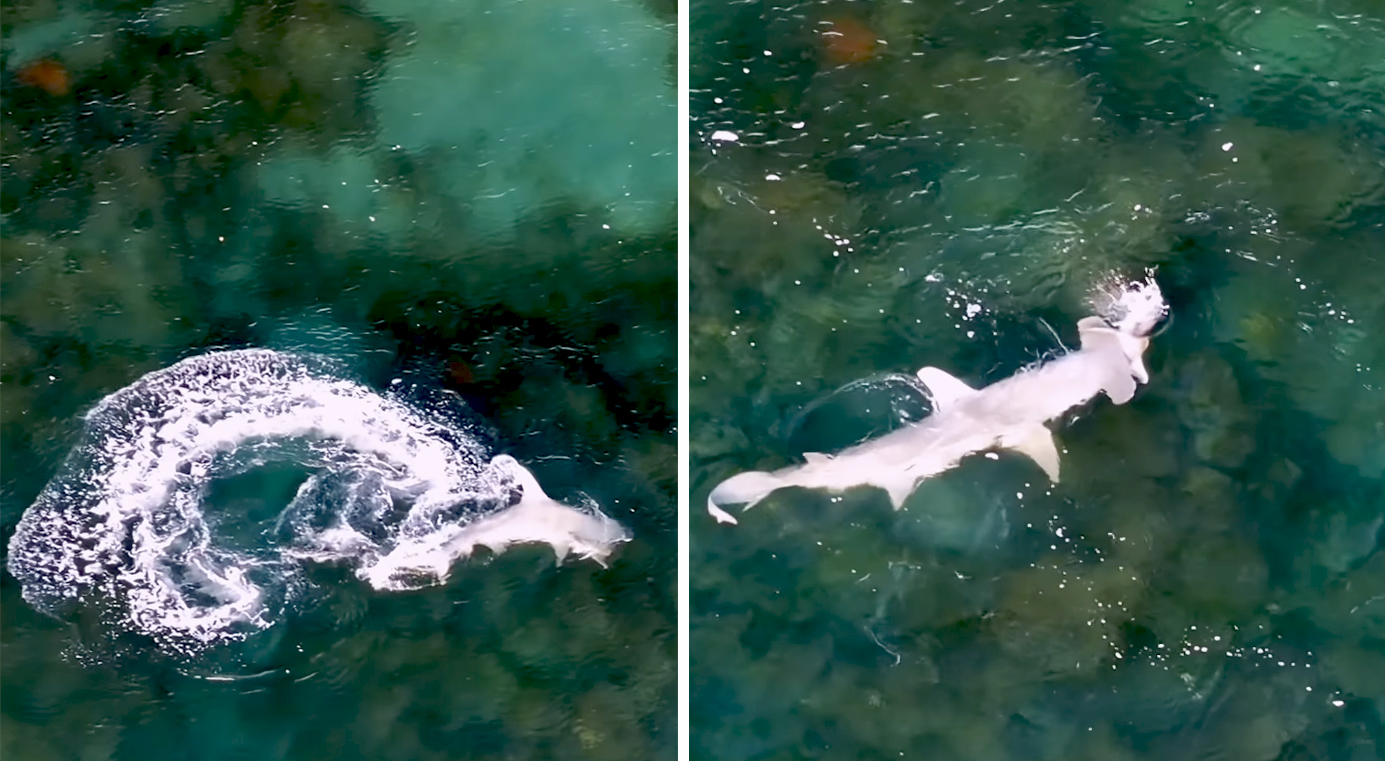A Florida videographer captured rare drone footage off the coast this month when she recorded a hammerhead shark hunting and killing what appears to be a small reef shark.
“Sharks eating sharks … My coffee didn’t wake me up nearly as much as this footage,” writes Marissa Wil, an angler and ocean videographer, in the caption that accompanies the Instagram post.
At a distance, Wil initially thought all the splashing was produced by dolphins chasing fish. When she piloted the drone closer, however, she realized, “that’s a big f*cking shark!”
As the footage starts rolling, all the splashing surf subsides enough to reveal a powerful hammerhead thrashing something in the water. When a (much smaller) reef shark streaks out from under the hammerhead and makes a run for it, the bigger shark easily overtakes it again. The little fish escapes once more and makes a final bid for freedom before the hammerhead closes in for the last time.
Wil didn’t immediately respond to a request for comment on more details around the shark hunt, but her footage is still a fascinating look at how these sharks prefer to hunt. As the hammerhead tries to catch the smaller fish, it spins in circles and makes streamlined sprints (hammerheads can swim up to 25 mph). Finally, the hammerhead locks its jaws and whipsaws the entire length of its body, pumping its powerful tail as it shakes its prey.
After thrashing its dinner, the hammerhead releases the reef shark and the mangled fish drifts, bleeding at the tail-end, toward the ocean floor and swims off. The footage cuts out before we can see if the hammerhead returns to feed, so it’s not immediately clear whether the bigger shark was playing with its food or intending to make a full meal out of it.
Read Next: Spearfisherman Attacked by Bull Shark Says It’s a ‘Blessing’ He Kept His Hand
“Hammerhead” is a catch-all designation for nine different species of shark with the iconic-shaped noggin (the eye protrusions are actually cartilage, not bone). The largest of those, the great hammerhead, can grow up to 20 feet long and are known to hunt in shallow waters (like those pictured in the video) and brackish bays, as well as in deeper water. While larger hammerheads often prey on bigger fish, smaller sharks, and squid, great hammerheads specialize in hunting and eating large stingrays.
Although relatively common in Florida, great hammerheads are on the state’s prohibited species list for fisherman. Take is still allowed in federal waters, according to the Florida Fish and Wildlife Commission. While other sharks are more likely to bite a human when unprovoked, hammerheads are still 7th on the list.
“I apologize for the jerky flying,” adds Wil, referring to a few camera-angle adjustments during the clip. “I forgot to breathe for a bit there.“
Read the full article here




